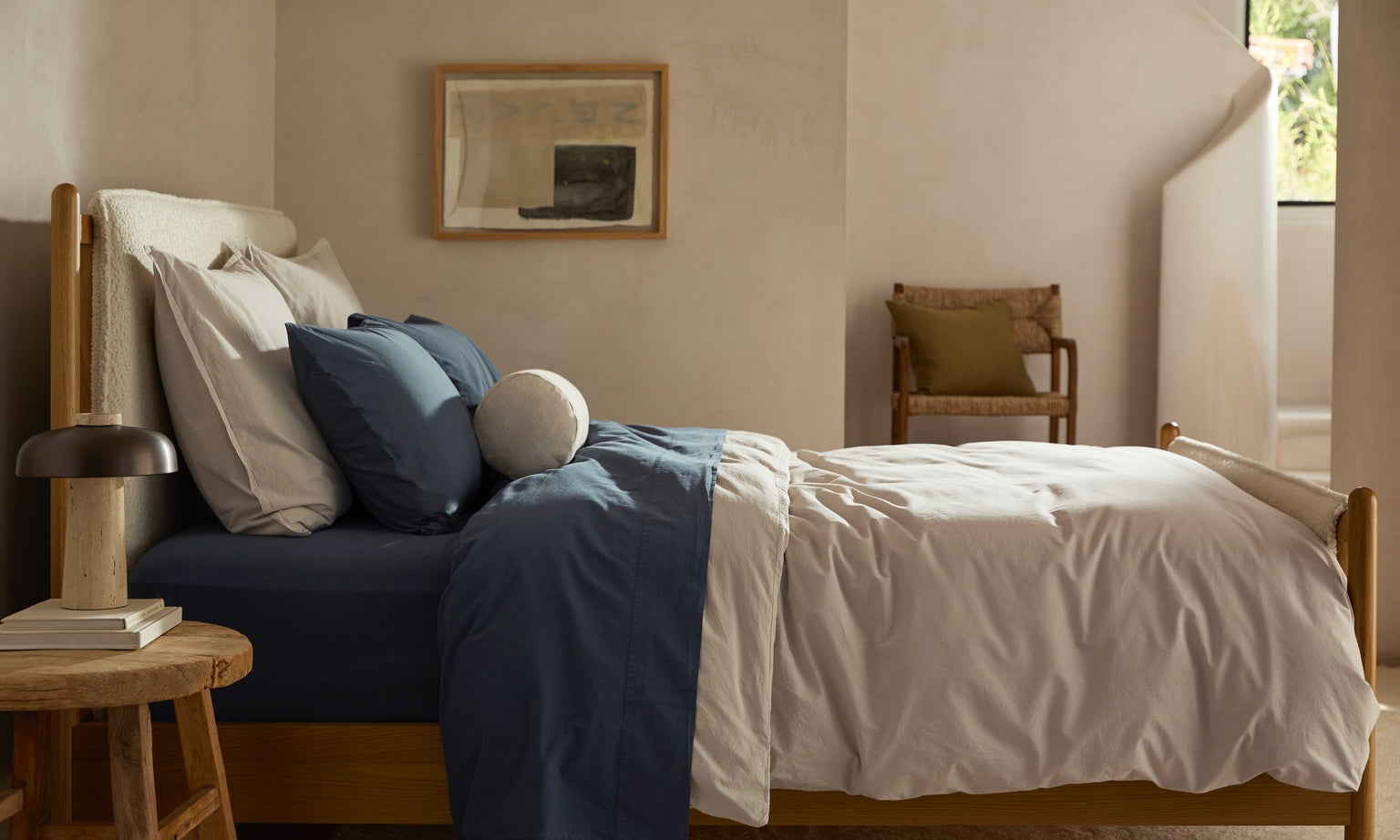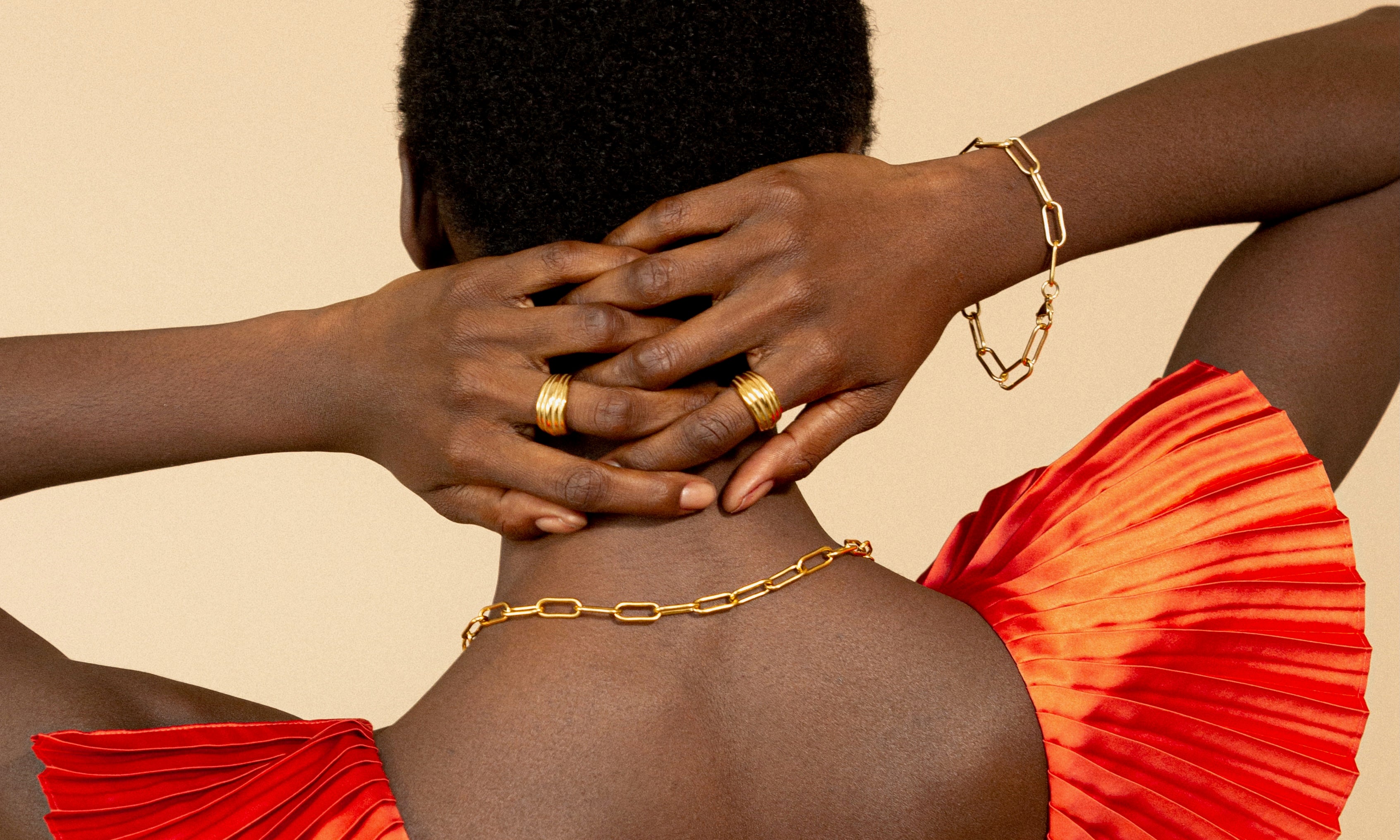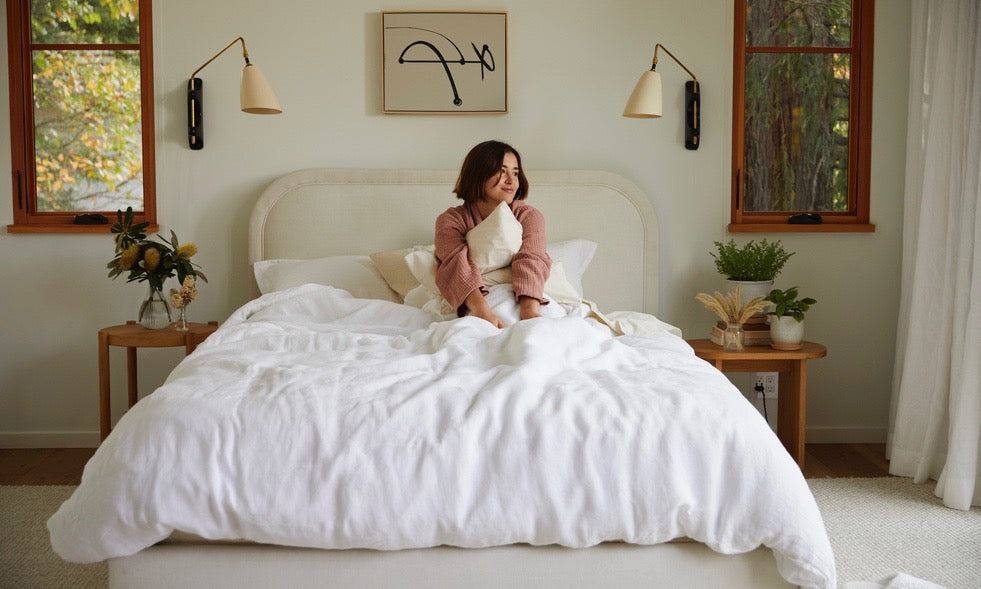
How to Layer and Style Your Bed Like a Stylist
A step-by-step guide for assembling your coziest bed yet.
What makes a bed cozy and inviting? Although sheets, duvets and pillows are essential components of any comfortable bed, learning how to layer like a designer will help you create a bedscape and an impressive experience that you and your guests will love. From the mattress topper to sheeting, the perfect throw and pillows on pillows here’s how to style a bed that looks as good as it feels.
How to Layer a Bed
There are different ways to make your bed, depending on your style preference as well as the season. But you’ll always want a comfortable base with clean lines, plus premium layers you can drape, fold and stack to achieve the look of modern styles. Check out the details for your options then how to style a bed using these components.
Mattress TopperThe foundation of a great night’s sleep starts with your mattress, but a mattress topper offers the ability to customize your sleep experience.
Start with a mattress pad for your base, to add a protective layer between you and your mattress. A mattress topper also adds an extra layer of comfort. Consider upgrading to a Down Mattress Topper to feel like you’re sinking into a marshmallow-stuffed cloud. Or take comfort to the next-level with a Wool Mattress Topper that offers extra support while cradling your pressure points. The wool topper features a natural resilience to body impressions. Its breathable, moisture-wicking qualities provide a comfortable sleep year round.
Since the mattress topper rests underneath everything else on the bed, it’s important to find one with deep enough pockets to fit your mattress so it doesn’t lose its grip and bunch up. For help finding the best duvet for you, read the Guide to Mattress Toppers & Mattress Pads.
SheetsThe sheeting layer is essential because it’s the part of the bed you’ll come in contact with the most, so make sure you choose high-quality sheets. You’ll need a fitted sheet — that’s the sheet with the elastic around the edges — and a top sheet if you prefer one. Your choices for sheets depend on your preference for both the feel and look of the fabric. Whether you’re looking for the crisp, clean look of percale, the silky, luxurious sheen of sateen, the buttery soft finish of brushed cotton, or the relaxed, casual elegance of linen, Parachute sheeting has you covered in a variety of colors and styles. If you want to learn more about each sheeting option when thinking about how to make your bed, check out Parachute’s Fabric Guide.
DuvetHere’s where you have the chance to start showing off your personal style. Using a Down Duvet Insert will help you create that fluffy, cloudlike bed, and the Down Alternative Duvet Insert offers a hypoallergenic alternative for allergy sufferers. Protect and style your duvet by using a Duvet Cover in your choice of material and color. A cover helps extend the life of your duvet and lets you change your bedding style with the season (or for any other reason).
PillowsWhen you’re considering how to layer your bed, pillows are essential: They add color, volume, dimension, style and of course, comfort. So how many do you need? The number depends on appearance as well as comfort, but there are certain types of pillows you’ll want to include when layering any bed.
You’ll want to start with Euro pillows for support — when propping yourself up in bed to read, for instance. The number of Euro pillows you’ll need depends on the size of your bed: One pillow for a twin bed, two for a full or queen and three for a king.
Then there are the pillows you sleep on. You have plenty of options depending on your sleeping preference: soft, medium or firm, and side or back sleeper. Include at least two pillows for each sleeper to ensure maximum versatility, comfort and style.
There’s really no limit when it comes to decorative pillows, and there are endless combinations for cute ways to make your bed:
A simple linen lumbar pillow provides additional support and offers a long, clean look across the front of the bed.
Use shams to unify the look of a bed. Group them with other pillows or use them to mix and match with the colors and patterns in your duvet cover.
Printed pillows can be used in a variety of ways when styling a bed, depending on whether you want to go for simple and elegant or cozy and lush. Designers typically recommend sticking to the rule of odd numbers: three, five or seven pillows per bed. Make sure you have a place to store the pillows when it’s time for bed — a cute basket can keep them out of the way and protected.
A body pillow like the Vintage Linen Body Pillow can serve as a statement piece, instantly elevating the luxury level of your bedding.
Need some more help choosing the best pillows for your bed? Check out Parachute’s Pillow Guide.
Quilts and ThrowsDepending on the season, you may need a light throw tastefully layered at the base of the bed, or you may want to layer on multiple throws and quilts for an extra cozy night’s sleep. To discover the best quilt or throw for the level of warmth you desire, check out Parachute’s simple guide on quilts and blankets .
But throws and quilts aren’t always for keeping warm. Decorative quilts and textured throws can also add an interesting new design element to your bed.
How to Make a Bed
The best way to make a bed is to follow these simple steps, but incorporate your personal tastes along the way to style a bed that’s uniquely you.
1. Add Your SheetsYour fitted sheet should fit snugly on the bed to create a clean, flat surface. Lay the top sheet with the pattern facing down, so the seam side is up. That way, when you open the bed and pull the sheet over the duvet, the decorative edging on the sheet will face up.
When tucking in your sheets, use hospital corners (named for, yes, hospitals) to ensure clean lines at the foot of the bed. To achieve this, tuck the bottom edge of the sheet under the mattress. Then fold the extra cloth from the corner up onto the bed. Tuck in the triangular-shaped portion of the sheet under your mattress. Then fold the part of the sheet that you laid on your bed under the mattress. The corner of your bed should resemble a wrapped package.
2. Layer Your DuvetNext, lay the duvet on top of the sheet, making sure both sides are even. Before placing the duvet on your bed, shake it out to ensure maximum fluff and volume.
3. Add Shams and PillowsNow for the pillows. Prop your Euro shams against the headboard. Place your standard shams in front of the Euros, then your bed pillows in front of the shams. For the decorative pillows, start layering forward and toward the middle. Depending on your preference, you can precisely prop them up for a simple, elegant look or pile them on a little more randomly for a cozy, relaxed appearance. Learn more about these bedding staples in our Sham and Pillowcase Guide.
4. Lay on Quilts and ThrowsFinally, add the throws and quilts. A simply folded throw laid across the foot of the bed can help tie the look of a bed together, but don’t stop there. Layer a quilt on top of the duvet for extra warmth, or roll up a number of light throws and place them in a basket at the foot of the bed for balmier evenings. Let the season and your style help you decide.
At the end of the day, following the steps for the proper way to make a bed will do more than make it look Instagram worthy. By styling it with a full array of premium bedding products, you’ll create a sleep space that’s more inviting and comfortable, setting yourself for a better night’s sleep.
Read on:
Brushed Cotton: Know Your Bedding Fabrics Like a Designer
Sateen: Know Your Bedding Fabrics Like a Designer
Linen: Know Your Bedding Fabrics Like a Designer
Why Sleep on Organic Bed Sheets? What to Look For
Why Choose Oeko-Tex Certified Sheets
Why Choose GOTS Certified Fabrics for Your Home
Why is European Linen the Best in the World?
Guide to Duvets and Duvet Covers
Quilt, Blanket, & Coverlet Guide
Sustainable Home Essentials: Eco-Friendly Products for Your House
Best Organic Robes: What to Look For in an Organic Bathrobe
Organic Clothing 101: What Natural Clothes to Buy for You & Your Kids








